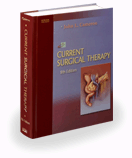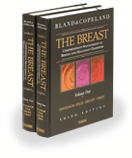Resources
These resources are useful throughout your surgical training however they take greatest importance when you are preparing for the part II examination.
Textbooks, journals, internet resources and practical tips and advice.
Recommended Textbooks
There is no specific textbook recommended by the college to cover the curriculum. Here you will find a list of suitable texts and a basic review of each.

Cameron's Current Surgical Therapy

Sabiston's Textbook of Surgery : the biological basis of modern surgical practice.

The Oxford Textbook of Surgery

Operative surgery manual

Shackelford's surgery of the alimentary tract

The Breast : comprehensive management of benign and malignant disorders
Recommended Journals
You will be expected to read widely during training and keep abreast of major developments in surgery appearing in any peer reviewed journal. Of particular importance is the ANZ Journal of Surgery which is the leading publication for surgical research in Australia and New Zealand. Traditional links with the United Kingdom ensure that The British Journal of Surgery remains influential of Australian surgical practise. These two journals are essential reading during preparation for the exam. Written exam questions are frequently derived from editorials or reviews published within the preceeding twelve months in these journals.
Internet Resources
The Royal Australasian College of Surgeons This provides up to date and comprehensive information about training regulations and requirments. The online library also provides access to a variety of journals, databases and textbooks.
National Health and Medical Research Council The NH&MRC develops guidelines for the management of many conditions in particular common cancers such as breast and colorectal. These guidelines can be found at and downloaded from the NH&MRC website.
Surgical Tutor This website has been developed to assist trainees of the Royal College of Surgeons of England in preperation for their exams.
Cochrane Collaboration The Cochrane Collaboration was designed to provide systematic reviews of evidence based medicine
Wheeless Textbook of Orthopaedics A free online textbook of orthopaedics that provides useful information regarding orthopaedics diagnosis, treatment and surgical techniques.
Victorian Clinicians Health Channel Free resource for Victorian healthcare providers with links to MIMS, Medline, and therapeutic guidlines amongst others.
Logbook Summary This spreadsheet follows the format of the RACS logbook summary. It calculates total case numbers and rates of surgery performed as the primary operator. It can be used to provide the summary of operative experience during training that is required to be submitted when applying to sit the part II fellowship examination.
Advice and Tips
Study
Remember that the part II fellowship exam is designed to test your competence as a general surgeon. It is not designed to test your knowledge and ability with regards to highly specialised conditions or operations.
Develop a study plan to approach the part II exam early. Realistically expect to start studying 9 months before the exam with gradually increasing intensity.
Join or start a study group. It is important to study with or alongside your peers to assess the effectiveness and progress of your study.
Operative Surgery
You will be expected to be familiar with a broad range of general surgical operations and principles in the exam. There is also an emphasis on managing complications during surgery and your approach to managing difficult situations. It is therefore useful to make note of potential pitfalls and their management during common operations.
Various operative surgery textbooks exist but none will be as useful as the one you write yourself. With each new operation that you see take time to write out the important steps and draw appropriate diagrams. This can then be continually updated as you see other people do the operation differently or manage different situations.
Surgical pathology and pathophysiology/intensive care
This subject seems vast and impossible to cover in detail. Dont waste too much time reading material that wont be examined.
Use the modules as a guide to your study. Often the examiners will release a short list of topics which will be examined. -know these.
For instance in 2006 the guide to the exam released by the court of examiners cntained the following list: shock, serious sepsis syndrome, reperfusion syndrome, respiratory failure, renal failure, liver failure, necrotising fasciitis, pancreatitis, ischaemic bowel, burns, blood transfusion, metabolic response to injury and surgery, anaphylaxis, bleeding disorders or DIC,carcinogenesis, systemic manifestations of malignancy, wound healing, molecular genetics, transplantation immunology, the elderly surgical patient, diabetes mellitus, nutrition, thromboembolic disease, bacterial infection, fungal infection and infection control.
One good way to cover this subject is in group disussion.